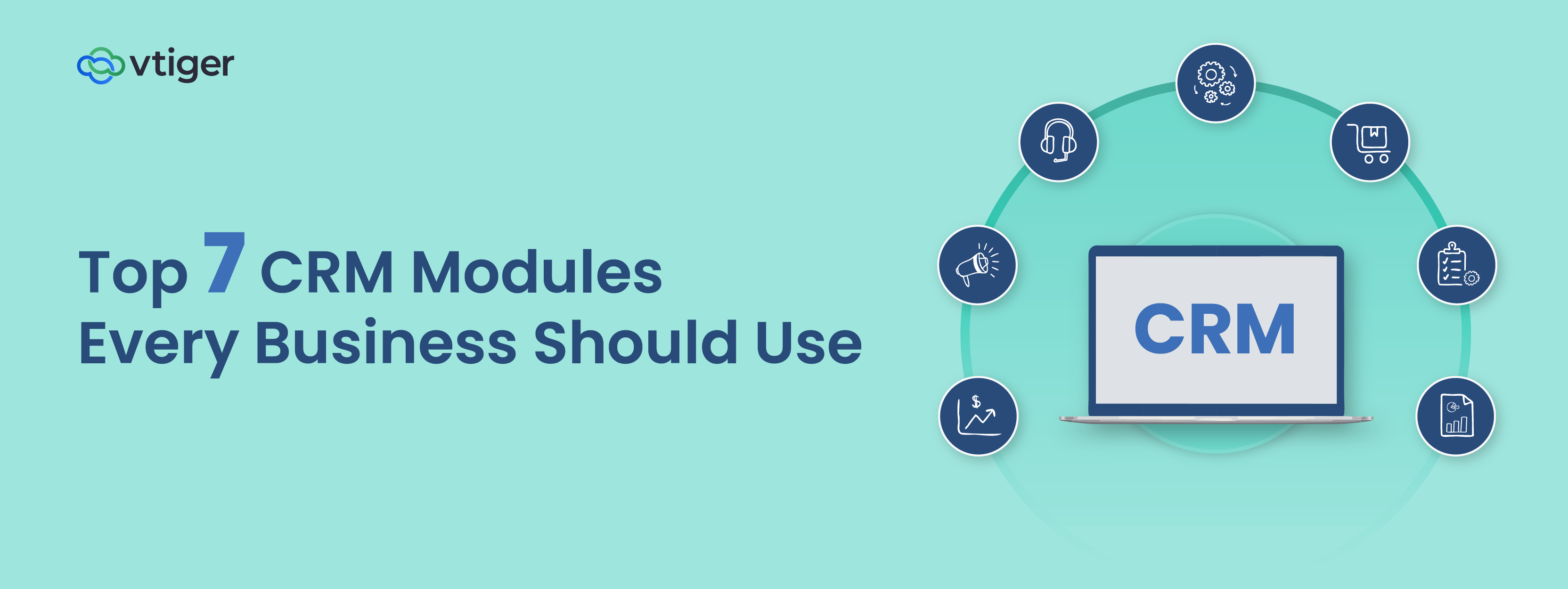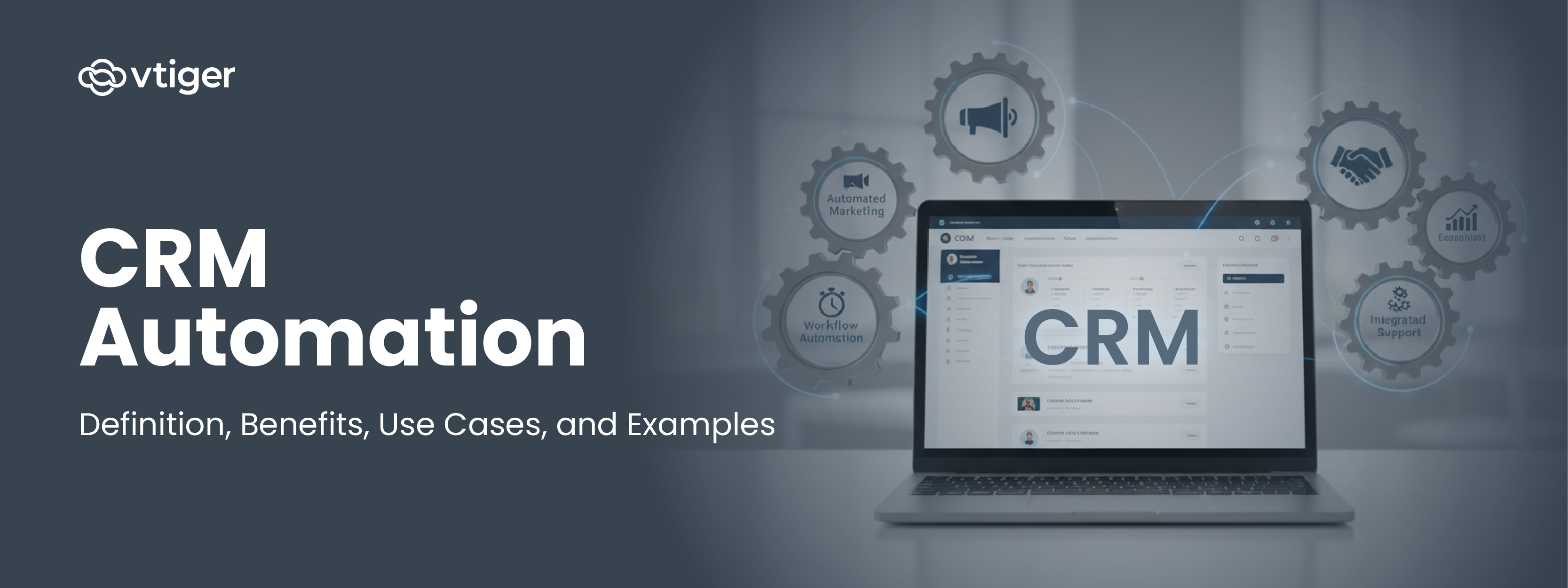The global Customer Relationship market is growing rapidly. It is expected that the market will continue to expand steadily with an annual growth rate of 8.02% from 2025 to 2030, resulting in a market volume of US$145.37bn by 2030, according to Statista
Today, more than half of the businesses rely on CRM and its modules to engage with their customers and streamline key processes. In other words, if you are not using the right CRM modules, you are missing out on driving serious business growth.
Let’s understand the CRM modules in detail and explore how to leverage their benefits
What are CRM Modules?
CRM modules refer to specialized functionalities that make up a comprehensive CRM system. Each module is designed for a specific purpose to manage different aspects of the customer management process. CRM modules work collectively in CRM software and offer you functionalities to effectively organize, analyze, and track customer data and interactions.
Why are CRM modules important?
It is crucial to understand the importance of CRM modules for businesses that are seeking to optimize their operations. They provide several key benefits, such as:
- Flexibility and customization: Businesses can choose only the features they need. The customization options enable organizations to tailor the system to specific workflows, ensuring that the system aligns with unique business requirements.
- Improved efficiency: CRM modules eliminate data silos by integrating different data sources into a unified system, which is accessible to everyone. This facilitates seamless collaboration between different departments, leading to more informed decisions.
- Better analytics: CRM modules with robust analytics features can offer valuable insights into customer behaviour and business performance. This will help companies identify trends, forecast needs, and make data-driven decisions.
Top 7 core CRM modules for robust customer relationships
As discussed above, CRM modules are designed to perform specific functions within a CRM system. Now, it’s time to understand the seven essential CRM modules for your business that you should utilize to drive growth and success:

1. Sales Module
The sales module is often considered as the core of many CRM tools. It streamlines the sales process and manages the complete sales cycle, from lead generation to closing deals, making it essential for any business that is focused on revenue growth.
Key Features
- Lead Management to capture, organize, and manage leads.
- Pipeline Management to view the deals in different stages.
- Quotes to create professional-looking quotes directly from the system.
- Sales forecasting to predict the future business outcome.
2. Marketing Module
The marketing module is to improve marketing efforts and optimize lead generation. This is another important module to create more targeted and effective marketing campaigns.
Key Features
- Email campaigns to plan, execute, and track marketing campaigns.
- Customer segmentation to divide customers into targeted groups based on various factors.
- Lead scoring to score and nurture leads through the sales funnel.
3. Customer Support Module
It focuses on offering excellent customer support and maintaining customer satisfaction. This CRM module is crucial for post-sale customer engagement.
Key Features
- Ticket management to create, assign, and track support tickets.
- Multi-channel support to integrate various communication channels such as email, chat, and WhatsApp into a single location to interact seamlessly with customers.
- Knowledge base to provide a repository of resources such as articles, FAQs, and guides for self-service support.
4. Workflow Automation Module
The workflow automation module helps automate repetitive tasks, reminders, and task assignments, significantly impacting team productivity.
Key Features
- Process automation to automate tasks such as data entry, follow-up emails, and lead assignment.
- Rule-based triggers to set up rules and conditions that trigger specific actions.
- Approval process to automate approval workflows such as purchase orders, quotes, leave requests, etc.
5. Inventory Management Module
Track stocks, orders, and deliveries using the inventory management module for product-based businesses.
Key Features
- Inventory tracking to monitor stock levels across different locations.
- Product catalog management to maintain detailed product tracking.
6. Project Management Module
The project management module enables task assignment, timeline tracking, and progress monitoring within the CRM environment.
Key Features
- Task assignment to assign specific tasks to your team members.
- Progress tracking to monitor project completion and identify potential delays.
7. Reporting and Analytics Module
The reporting and analytics module takes raw data and turns it into useful information, helping businesses make intelligent decisions.
Key Features
- Customizable dashboard to track activities such as sales performance in real time.
- Report generation to track Key Performance Indicators (KPIs) and gain valuable insights.
Choosing the right CRM modules for your business
Selecting the right CRM modules requires careful consideration of your business needs and goals. When choosing CRM modules, here are the factors to evaluate:
Business size and structure
Start by identifying your business goals. Whether you are aiming to increase sales, improve customer service, or streamline marketing, each objective will require specific features. Choosing modules that align with your goals ensures that the CRM directly supports your priorities and delivers measurable impact.
Industry requirements
Every industry has unique processes and customer interactions, so it is important to choose CRM modules tailored to your sector. For example, real estate businesses may need property tracking, while e-commerce companies benefit from order and inventory management. Choosing industry-specific modules saves time and reduces the need for extensive customization.
Scalability and Flexibility
As your business grows, your CRM should be able to expand with it. Choosing the right CRM modules allows you to start with essential features and expand over time. Look for flexible modules that can be configured to adapt to changing business needs without requiring a complete change to the entire system.
Benefits of Using CRM Modules
CRM modules offer a wide range of advantages, allowing businesses to streamline different functions within a single platform. The advantages include:
- Improved customer relationship management: It allows you to store and organize customer data, making it easier to track interactions and personalize communication.
- Field customization: It gives you the ability to customize fields, automate workflows, and personalize the user interface (UI) as per your specific needs.
- Enhanced team collaboration: With all the modules for sales, marketing, and customer support in a single location, teams can stay aligned on customer goals.
- Automation: Reduce manual work by automating repetitive tasks, improving team efficiency.
Examples & Use Cases of CRM Modules
Exploring real-world examples can enhance your understanding of CRM modules. Let’s delve into the use cases of the key CRM modules below:
- Sales Module: A software company uses the sales module to assign leads to its team members, track opportunities through pipeline management, resulting in a 57% increase in sales revenue.
- Marketing module: An e-commerce company creates email sequences for cart abandonment and sends a series of emails to customers who do not complete their purchases. This approach helps them achieve a 76% cart recovery rate.
- Customer support module: An online retailer creates a comprehensive knowledge base integrated with their CRM. When customers contact support, agents can quickly access relevant articles and share them with customers, reducing resolution time by 40%.
- Workflow automation: A real estate firm automatically sends contract agreements and other documents via email to its customers the moment a lead purchases a property. This has freed up 55% of the agents’ time, allowing them to focus on other tasks.
Conclusion
In a nutshell, picking the right CRM modules helps your business stay organized, connect better with customers, and grow faster. Start from the basics and choose the modules that matter most, and add more as your needs change. With the right CRM system modules like those in Vtiger CRM, you can make work easier for your team and keep your customers delighted.
You may also like other CRM-related resources:
- What is CRM?
- Benefits of CRM
- How does CRM system work?
- What is a CRM system?
- What is Sales Management
Frequently Asked Questions (FAQs)
CRM modules are different sections in a CRM system that can handle specific activities related to sales, marketing, and support. Think of them as building blocks that work together to help you manage customer relationships more easily.
The most common CRM modules include sales, marketing, and customer support. Other less significant modules are workflow automation, project management, and inventory management.
CRM modules let you pick only the features you need, making them more flexible and cost-effective. You can start with basic modules and add more as your business grows.
Yes, most CRM modules are customizable. You can often adjust fields, workflows, and even show or hide features as per your requirement. This way, you can make your CRM work in the best interest of your team.



